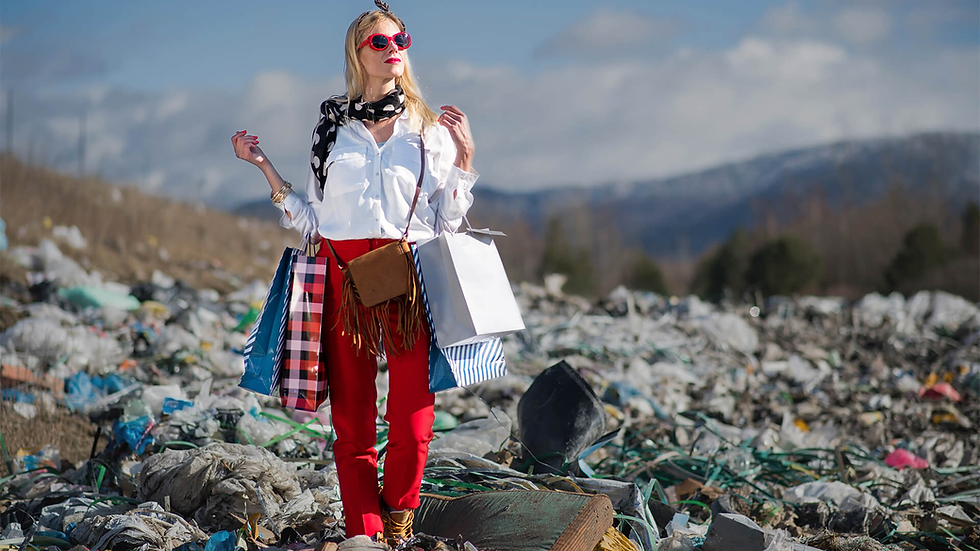The challenge of Selling Sustainability to the Youth | Identity or Identical
- Gavriel Ewart
- May 15, 2022
- 2 min read
Discovering Your Own Style
Throughout many generations, there has always been the chapter of one's young adult life when the opportunity of freedom and “finding themselves” is made available.
A topic within the ‘discovery of oneself’ is figuring out your preferred style of clothing. Although this topic has always been apparent, it has flourished more than ever in recent years since more styles from the past have resurfaced and more alternative designs are being discovered.
Today's youth are born into a society where they have effortless access to every clothing style imaginable. They are given more flexibility upon various purchases because of discounted stores, and thanks to fast fashion, shelves are constantly being reloaded with new trends.
They rely on mass production and endless options in order to discover the type of person they want to be in society. They use fashion as a method of showing the world who they are and how they want to be portrayed.
Mixed Messages
A strong message of environmentalism as well as activism for unjust labor and mass waste in the fashion industry have been shoved in the faces of many young adults. Since they are the future, they should be informed because inevitably, they will have to be the ones to fix it.
But how are young people supposed to comprehend the immense troubles of mass production, when that is the tool used for constructing their individuality?
Although ethical production, ‘made to order’ business strategies, and high-end thrifting apps seem to be one solution to the mass waste, how are the youth expected to contribute to the solution when they are supporting the problem in order to ‘find themselves’?
Sustainably Identical or Identity Through Corruption
Will sustainability among the youth insinuate an ideal of cloning or constricting youth creativity?
There have been many new sustainable brands on the rise recently, so access to creativity and options is not the problem, the problem is general access due to price.
A brand is not truly sustainable unless the price is high - profits go towards ethically paying for all processes of production, distribution, and finding high-quality environmentally friendly materials - so does that place a cement barrier between the youth and sustainable living?
How do we expect the new generation to contribute to the solution when rationally, they are one of the biggest components of the problem.
We inform them, we educate them, and we make them aware. Rather than remaining the problem, they can be one of the biggest solutions.
Since the Generation Z and Millennials are what makes up one of the biggest factors in overconsumption, waste, and over-production, convincing them to halt their current mindset would tear down the entire system. You can’t continue the unhealthy cycle if there is no one left to buy into the lies.







Comments